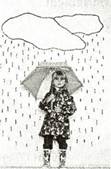ÍêÐÎÌî¿Õ£¨¹²15СÌ⣬¼Æ15·Ö£©
ͨ¶ÁÏÂÃæ¶ÌÎÄ£¬ÕÆÎÕÆä´óÒ⣬ȻºóÔÚ¸÷ÌâËù¸øµÄËĸöÑ¡Ïî(A¡¢B¡¢CºÍD)ÖÐÑ¡³öÒ»¸ö×î¼ÑÑ¡Ïî¡£
Each of us fails from time to time. If we are wise, we accept these failures as a necessary
1 of the learning process. But too often as parents and teachers we deny this same right to our children. We convey(´«´ï)
2 by words or by actions that failure is something to be ashamed of, that nothing but
3 performance pleases us.
4 I see a child under this kind of pressure ,I think of Jack. He is a shy, nervous perfectionist. He
5 answered questions¡ªhe might be
6 .
I try my best to
7 his self-confidence. And I repeatedly
8 God for direction. But
9 changed until midterm, when Mary, a student teacher, came to our classroom.
One day we were working with math problems. Jack had copied the problems with care.
10 with his progress, I left the children with Mary .When I returned, Jack was in tears. He¡¯d missed the third problem.
At that time, Mary got a box
11 with pencils from the desk we shared. ¡°Look, Jack ! I¡¯ve got something to show you.¡± she said.¡° See these pencils, they belong to Mrs. Green and me. See how the erasers are
12 ? That¡¯s because we make mistakes too. But we erase the mistakes and try
13 . That¡¯s what you must learn to do, too.¡± Jack looked up with
14 in his eyes---the first time I¡¯d see on his face that year.Jack gradually believe him that it¡¯s all
15 to make mistakes ¨C as long as you erase them and try again.
| СÌâ1: | | A£®life | B£®part | C£®game | D£®show |
|
| СÌâ2: | | A£®neither | B£®nor | C£®either | D£®or |
|
| СÌâ3: | | A£®high | B£®bad | C£®top | D£®big |
|
| СÌâ4: | | A£®When | B£®While | C£®As | D£®Although |
|
| СÌâ5: | | A£®always | B£®sometimes | C£®ever | D£®seldom |
|
| СÌâ6: | | A£®right | B£®wrong | C£®mistake | D£®fail |
|
| СÌâ7: | | A£®start | B£®set | C£®establish | D£®build |
|
| СÌâ8: | | A£®told | B£®asked | C£®said | D£®spoke |
|
| СÌâ9: | | A£®something | B£®nothing | C£®anything | D£®everything |
|
| СÌâ10: | | A£®Kind | B£®Nice | C£®Great | D£®Pleased |
|
| СÌâ11: | | A£®filled | B£®full | C£®deal | D£®do |
|
| СÌâ12: | | A£®broke | B£®new | C£®good | D£®worn |
|
| СÌâ13: | | A£®once | B£®again | C£®too | D£®either |
|
| СÌâ14: | | A£®disappointment | B£®sadness | C£®fear | D£®love |
|
| СÌâ15: | | A£®right | B£®OK | C£®well | D£®good |
|




